Nigerian presidential candidate: I will decriminalise homosexuality
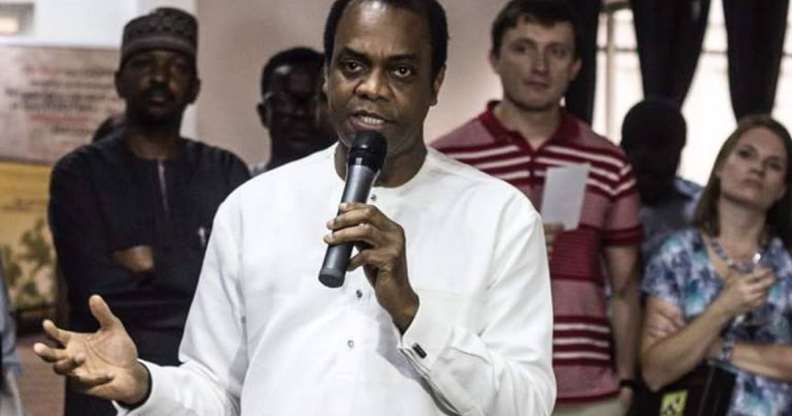
Duke is one of 13 candidates for president (donald duke/facebook)
A presidential hopeful in Nigeria has said he would “not criminalise” queer people.
Homosexuality is illegal in the country, with those convicted of having gay sex facing up to 14 years in prison – apart from in 12 northern states with Sharia law, where they are stoned to death.
On Sunday (August 26), police raided a hotel in Lagos and arrested 57 men on suspicion of having gay sex, just weeks after six men in the south-eastern state of Abia were arrested for the same reason.
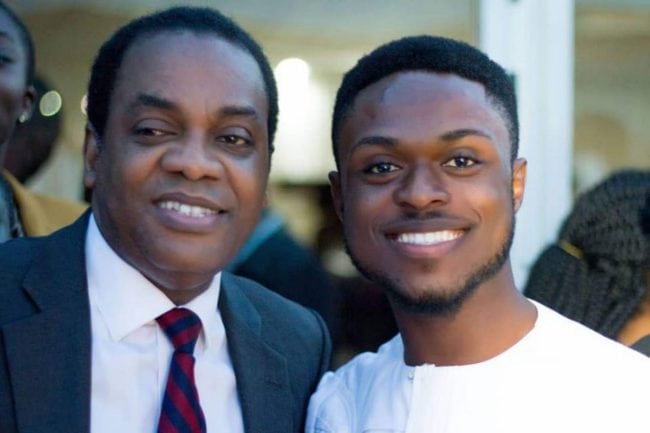
Those convicted of having gay sex in Nigeria face up to 14 years in prison or death (donald duke/facebook)
But Donald Duke, one of ten candidates running to become President in next year’s election, has said he intends to decriminalise homosexuality and would have a gay minister in his cabinet – as long as they stayed in the closet.
The former governor of Cross Rivers State, in south Nigeria, made the comments on a YouTube show called On The Couch, where he told the hosts, unprompted: “I want to talk about gender – I’m going to be taking questions on gay rights.
“I don’t understand it because I’m straight. I don’t understand the emotional feelings a gay person, for instance, would have of their sexuality. I don’t understand it.
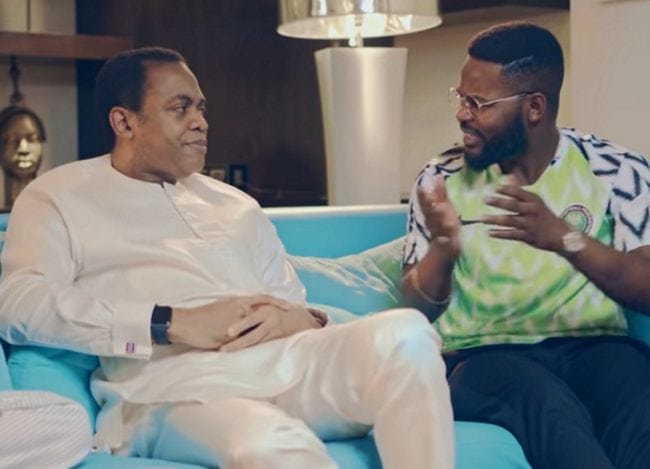
Duke made the comments on YouTube show On The Couch (OnTheCouch Naija/youtube)
“But I would not criminalise them,” he added. “I would ensure that they have the protection of the law.”
But he added that “if they want to exhibit their sexuality, that is an affront on the norms of the society, the current norms.”
One of the anchors, rapper Falz, asked him what he meant by “exhibit their sexuality.”
Duke responded: “I arrived in New York and went through the airport, and at the passenger rank, two guys came together and were kissing, right. Okay?”

“Keep it in your house” (OnTheCouch Naija/youtube)
“So, public display of affection?” Falz asked.
“Yeah,” Duke said, before agreeing with Falz’s summary of his stance, saying: “Keep it in your house.”
Falz and his co-host Laila Johnson-Salami, a broadcast journalist and co-founder of the We Rise Initiative, which empowers women and girls, asked if they could kiss their straight partners at the airport.
“We’re talking about the norms of society. Yes, the society accepts that as a norm,” came the response from Duke.
Falz accused Duke of discriminating against same-sex couples, to which the presidential hopeful said, laughing: “The day you try and kiss me, I will slap you. So don’t even try it.

“The day you try and kiss me, I will slap you” (OnTheCouch Naija/youtube)
“No, but on a serious note, you cannot jettison the norms of society; society has certain norms. There are certain things you can do in America, you can do in England, you can do in Nigeria that you cannot do in Saudi Arabia.
“And you’ve got to respect the laws of society.”
Johnson-Salami asked if Duke would have a gay person in his cabinet, to which he said: “His sexuality is private to him; I don’t want to know.
“It’s not my business. My business is: can he perform the assignment that has been assigned to him?”
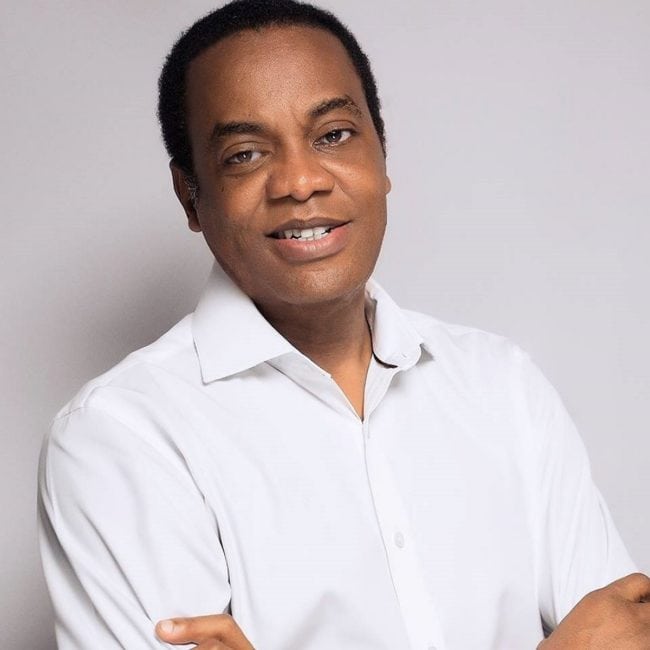
“His sexuality is private to him; I don’t want to know” (donald duke/facebook)
Falz said that if that were true, he wouldn’t care if the gay minister wanted to marry another man, to which Duke replied: “The law doesn’t allow him to marry another man yet. If he wants to live with another man…”
When asked about civil partnerships, he simply said: “The law doesn’t recognise civil partnerships.”
Last year, 42 men were arrested at a hotel in Lagos state and charged with performing “homosexual acts.”
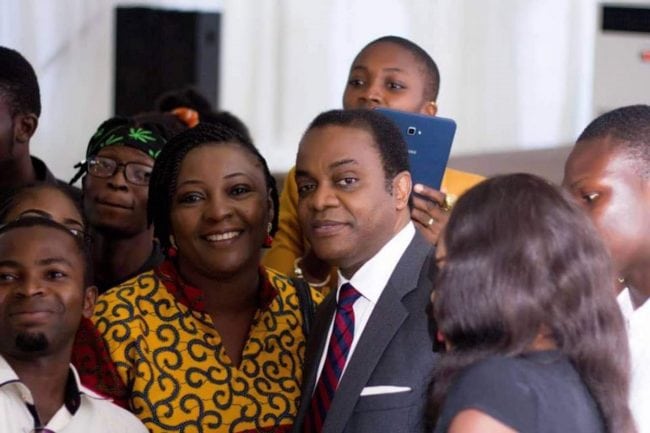
Duke said he would have a gay cabinet minister (donald duke/facebook)
Earlier this year, Nigerian politicians hit out at Prime Minister Theresa May after the British leader promoted LGBT+ rights in the Commonwealth countries that still criminalise homosexuality.
During the Commonwealth Heads of Government Meeting (CHOGM) meeting in April, May spoke about the UK’s regret at imposing anti-gay laws in former colonies.
She noted that 36 of the 53 Commonwealth countries continue to criminalise homosexuality, saying: “I deeply regret the fact that such laws were introduced, and the legacy of discrimination, violence and even death that persists today.”

